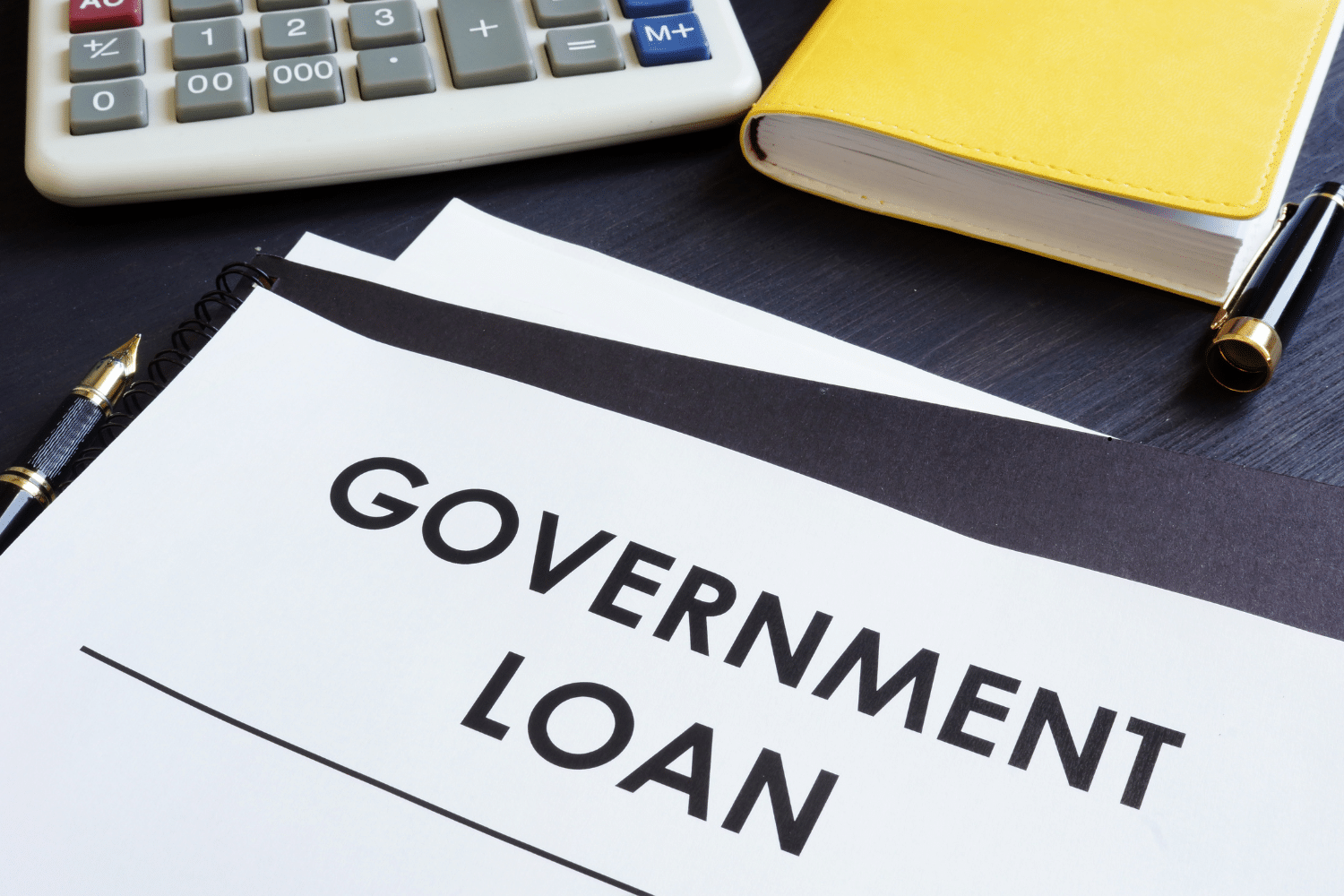Concerned about bankruptcy? This article offers practical steps on how to avoid bankruptcy. You’ll learn how to assess your finances, create a budget, and negotiate with creditors. These tips aim to guide you toward financial stability.
Key Takeaways
- Assessing and regularly updating your financial situation is crucial for managing debt and creating a strategic repayment plan.
- Maximizing income through side jobs and negotiating with creditors can provide essential funds and better terms to avoid bankruptcy.
- Lowering expenses, adjusting lifestyles, and seeking credit counseling are effective ways to regain control over finances and prevent bankruptcy.
Assess Your Financial Situation

Begin by listing every creditor, the amount of debt owed, the interest rate, and the monthly payment required to understand your financial situation. This comprehensive list will give you a clear picture of all your debt and help you manage it better.
Include key components such as the creditor’s name, total owed, interest rate, and payment schedule in each debt listing. This detailed overview helps prioritize debts that need immediate attention versus those manageable over time. A clear picture enables the creation of a strategic repayment plan to reduce the risk of bankruptcy.
Update this list regularly to stay on top of your finances and make informed spending and saving decisions. This proactive approach is a crucial step toward financial stability.
Create a Bare-Bones Budget
A bare-bones budget prioritizes funds for essential expenses and debt repayment. Identify your basic needs such as food, utilities, shelter, and transportation.
Eliminate or minimize discretionary expenses like entertainment, dining out, and non-essential shopping. Spend less on groceries, negotiate bills, consider cheaper housing options, and possibly sell a car if it’s not necessary. Focusing on essentials can free up more money for debt repayment.
Use cash or a debit card instead of credit cards to minimize spending. Track your expenses to reveal more funds for debt repayment. This disciplined approach helps regain control of your finances.
Maximize Your Income

Increasing your income can be a game-changer in avoiding bankruptcy. Consider a second job, freelancing, or side gigs like pet sitting. These additional income sources can provide the extra money needed to pay off your debts.
Freelancing offers flexible hours, allowing you to work on projects that fit your schedule without a long-term commitment. Use any extra income from these efforts primarily to pay off your debts as a temporary measure to enhance financial stability.
Maximizing your income can lead to significant strides in managing debt and avoiding bankruptcy.
Negotiate with Creditors

Negotiating with creditors can effectively help avoid bankruptcy. Most creditors prefer settlements over receiving no payment if filing for bankruptcy is necessary. Approach creditors directly and honestly about your financial struggles to build trust and potentially secure better settlement terms.
Nonprofit credit counseling services can assist in negotiating lower interest rates and fees, reducing financial burdens. Lump sum payments often appeal more to creditors and can result in lower settlement amounts compared to monthly payment plans.
Keep detailed records of all communications with creditors, including names and dates, and get agreements in writing to avoid future disputes. This organized approach helps manage debts more effectively.
Consider Debt Consolidation
Debt consolidation involves paying off high-interest debts with a lower-interest loan, making repayment cheaper and easier. This approach simplifies finances by transforming multiple payments into a single monthly payment.
Good credit may qualify you for a lower interest rate with a debt consolidation loan, expediting repayment. Assess your ability to make consistent payments before committing to a debt consolidation loan.
Consider potential risks, such as upfront fees that might offset savings and the possibility of spending more after consolidation, leading to further debt. Careful consideration of these factors helps make an informed decision to avoid bankruptcy.
Sell Unnecessary Assets

Selling unnecessary assets can provide immediate funds to pay off debts. Items such as DVDs, TVs, boats, clothes, books, furniture, tools, office supplies, craft supplies, and toys can generate extra income.
Assess the market value of items before selling to maximize returns, and consider using online marketplaces for quick sales. Valuable assets like vehicles or equipment can yield substantial cash when sold, reducing the burden of maintaining them.
Be Cautious with Debt Settlement Companies
Debt settlement companies may seem like a viable option to avoid bankruptcy, but they often come with high fees and risks. These debt settlement company typically charge fees based on the debt resolved or a percentage of the savings achieved. Many are criticized for failing to deliver on promises and having high upfront fees.
Creditors are not obligated to accept settlement offers, meaning you may still owe large amounts if negotiations fail. Debt settlement can also significantly drop your credit score due to missed payments.
Directly negotiating with creditors or consulting a nonprofit credit counselor as an alternative can save money and preserve your credit rating.
Seek Credit Counseling
Nonprofit credit counselors offer guidance in managing debts and can negotiate with creditors. A Debt Management Plan (DMP) involves making a single monthly payment to a credit counseling agency, which then distributes the funds to your creditors, often resulting in lower interest rates.
A DMP can help streamline payments and reduce interest rates but may also come with potential fees and decreased access to credit during the repayment period. Before consulting a credit counselor, gather all financial documents such as income statements and assets for a complete financial picture.
Credit counseling can be a valuable resource for debt relief to avoid bankruptcy and regain financial stability.
Borrow Money from Friends or Family
Borrowing money from trusted friends or family can be a last resort to avoid bankruptcy. If you choose this route, put the agreement in writing and establish a clear payback schedule to avoid misunderstandings related to financial trouble.
Consider this option carefully, as it can strain personal relationships if not handled properly.
Lower Expenses and Adjust Lifestyle
Lowering expenses and adjusting your lifestyle is crucial to avoid bankruptcy. Taking on a roommate can reduce housing costs and increase your budget. Canceling subscriptions, such as streaming services, can significantly lower monthly costs.
Finding less expensive alternatives for services can further decrease financial burdens. Reviewing bank account statements can reveal unnecessary spending money patterns, allowing you to cut back and save more.
Engaging with a credit counselor can provide personalized financial advice and support in budgeting and cost-cutting. These steps help manage finances more effectively and avoid bankruptcy.
What Happens If You Can’t Avoid Bankruptcy

If you can’t avoid bankruptcy, understanding the process can help navigate it more effectively. Bankruptcy is a legal process that can release certain debts. Individuals commonly use two types of bankruptcy: Chapter 7 and Chapter 13, each serving different financial needs. If you find yourself in a difficult situation, it may be necessary to file bankruptcy.
A Chapter 7 bankruptcy remains on your credit report for a decade, while a Chapter 13 bankruptcy stays for seven years. Monitor your credit after bankruptcy and consider secured credit cards to rebuild your score.
Pre-bankruptcy credit counseling from an approved agency is required before filing. The impact of bankruptcy on your credit score can be severe, reducing it by 100 points or more. Understanding these aspects helps prepare for the consequences and rebuild your financial future.
Summary
Summarizing the key points, we’ve discussed strategies to avoid bankruptcy, including assessing your financial situation, creating a bare-bones budget, and maximizing your income. We also covered negotiating with creditors, considering debt consolidation, and being cautious with debt settlement companies. Seeking credit counseling and borrowing money from friends or family were also highlighted as potential options.
Remember, taking control of your finances and making informed decisions can help you avoid bankruptcy and build a more secure financial future. Stay proactive and seek help when needed to navigate through financial challenges.
Frequently Asked Questions
A bare-bones budget focuses on essential expenses and debt repayment, minimizing any nonessential spending to effectively manage debt and prevent financial crises. It’s a practical approach for maintaining financial stability.
To effectively negotiate with creditors, communicate directly and honestly about your financial situation while maintaining detailed records of your interactions. Consider seeking assistance from nonprofit credit counseling services to help lower interest rates and fees.
Debt consolidation simplifies repayment by combining multiple high-interest debts into one lower-interest loan, which can also lower your overall interest costs. This approach can make managing your finances more manageable and less stressful.
Debt settlement companies can be ineffective and often impose high fees without delivering results. It’s better to negotiate directly with creditors or seek help from a nonprofit credit counselor.
If you can’t avoid bankruptcy, it will discharge certain debts but significantly impact your credit score for years. Seeking pre-bankruptcy credit counseling is advisable to understand the implications and navigate the process effectively.







